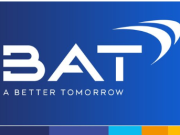Coming into effect on the 1st of March, a lower excise tax on nicotine-containing e-liquids has dropped prices from HUF 55 per ml, to HUF 20 per ml. In Hungary, black market sales are thought to account for approximately 80 to 85% of all e-liquid sales, and BAT has estimated that while there are approximately 200,000 e-cigarette users in the country, many of whom may be unaware that they are purchasing unregulated products.
“Hungarian e-cigarette consumers need to be given a chance to access quality refill liquids, just like in other European countries,” says Zoltán Orosz, country manager for Hungary at BAT Central Europe. “The sale of illegal products, besides robbing Hungary of considerable tax income, could endanger e-cigarette users as these products presumably fail to meet Hungarian and EU quality and safety standards.”
“We are proud that our refill liquids at national tobacco shops undergo rigorous testing by the committed research team of BAT group, and that our e-liquids meet all EU requirements,” added Orosz. “We have made steps in order to increase the access of domestic consumers to quality-assured products. Meanwhile, we are doing everything we can to keep e-cigarettes a safe option for smokers looking for the alternative of traditional cigarettes.”
Hungary taken to court by the EC over tobacco taxes
Meanwhile in 2019, the European Commission (EC) reported Hungary to the Court of Justice of the European Union (CJEU), for failing to apply the minimum required excise duty on cigarettes, as per European Union (EU) regulations.
A press release on the EC’s website has explained that Hungary was given until December 31, 2017, to gradually increase the excise duty on cigarettes and reach the required minimum threshold by the EU. However, this was not done and the excise tax remains below what is required by the European Union.
Read Further: Budapest Business Journal












